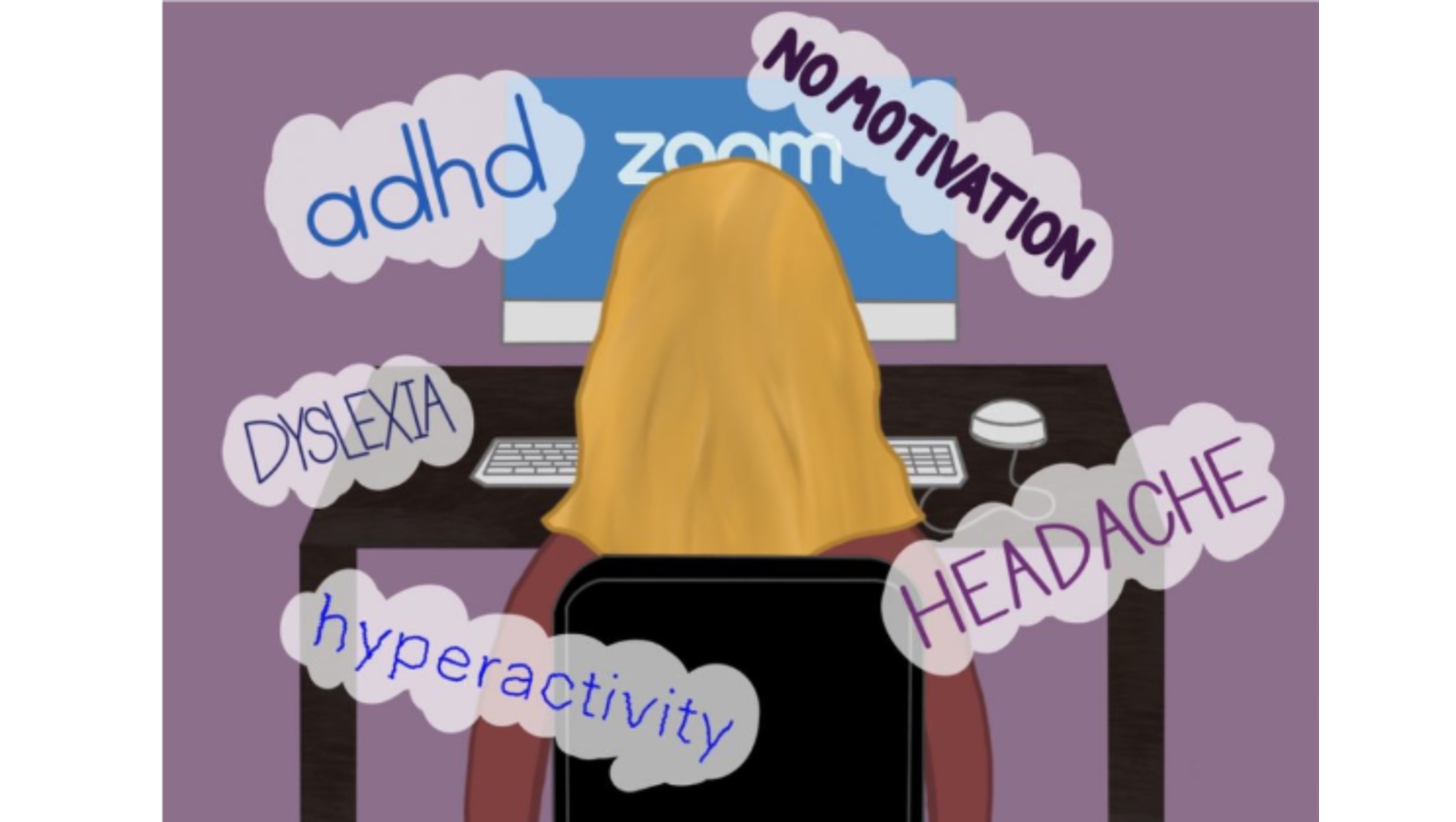
As a psychologist who specializes in testing and assessment for children, adolescents, and young adults, I have witnessed a striking increase in requests for ADHD and other learning disorder specific evaluations since the beginning of the pandemic. Studies are currently underway to determine the recent trend, and whether it is driven in large part by the move from in-person school to virtual learning.
Per the CDC, there are approximately 6.1 million children in the United States between the ages of 2 and 17 who have an ADHD diagnoses. Children with undiagnosed ADHD and other learning disorders are struggling more than their peers to keep up with the pace of virtual learning due to the loss of classroom structure, as well as the increase in demand for independent functioning and sustained attention. A recent article in NBC news documented this trend which is occurring across the country. Parents are now seeing how difficult it is for children to sit still and remained focused for virtual learning. This has also led children to demonstrate a decrease in motivation to complete school work, as well as an increase in anxiety related to academics and depression. What does the science tell us:
- A recent peer-reviewed article in the Journal of Adolescent Health indicated that adolescents with ADHD had fewer routines and more remote learning difficulties than adolescents without ADHD.
- Parents of adolescents with ADHD had less confidence in managing remote learning and more difficulties in supporting home learning and home–school communication.
- These findings suggested that it is imperative for schools and communities to provide the necessary supports to adolescents, particularly those with mental health and/or learning difficulties, and to their parents.
As a practice, we are here to support parents and children as they are struggling to meet the demands of a virtual curriculum. On the bright side, this is an opportunity for children to be correctly diagnosed at an early age, which is always more helpful for children in the long run. Psychological assessment provides an opportunity for children to be correctly diagnosed, and for parents to receive valuable information that can help both teachers and parents provide the right type of supports, which will ultimately set children up to feel more empowered and academically successful.
There are proven ways to help children with ADHD in any learning environment, with virtual environments needing these modifications even more, including:
- Increasing structure and predictability
- Allow children to take brain and body breaks
- Partner with teachers and encourage the teacher to check in with the student with ADHD to ensure attention and understanding
- Chunk lessons into shorter units
- Help the student stay on track with time by setting reminders and keeping visual calendar
- Keep the child engaged with learning by incorporating hands-on activities at home
- Empower the student to ask for extra teacher assistance when needed
- Consider working with a tutor or executive functioning coach
- Set up social opportunities either online or in person
- Becker, S, et al. Remote Learning During Covid-19: Examining School Practices, Service Continuation, and Difficulties for Adolescents with and without Attention-Deficit/Hyperactivity Disorder. (October 2020). Journal of Adolescent Health.
- https://www.cdc.gov/ncbddd/adhd/features/adhd-and-school-changes.html
- https://www.edutopia.org/article/5-ways-support-kids-adhd-during-remote-learning
- https://chadd.org/when-children-with-adhd-attend-school-from-home-an-experts-tips
At Anxiety Specialists of Atlanta we recognize that struggles with ADHD and executive function are not “one size fits all,” and we work to consider the needs of the individual in our approach to treatment. We welcome individuals of all backgrounds and walks of life to seek treatment for their struggles, and we take into account the lived experience of each person who needs our help. If you’re wondering if we’re the right fit for you, don’t hesitate to reach out. You deserve to receive the right care and support for your needs.
Dr. Grace Barnes, Licensed Psychologist
ADHD and Executive functioning Specialist
Clinical Associate, Anxiety Specialists of Atlanta
Dr. Barnes specializes in the assessment and treatment of ADHD, anxiety, learning, language, and executive function difficulties for children, adolescents, and adults
**Stay tuned for future posts exploring eating disordered behavior in Men and Athletes!
Resources and Articles for Further Reading:
- https://www.nationaleatingdisorders.org/identity-eating-disorders
- https://www.lgbtqiahealtheducation.org/wp-content/uploads/2018/04/EatingDisordersBodyImageBrief.pdf
- https://slate.com/human-interest/2014/03/eating-disorders-and-women-of-color-anorexia-and-bulimia-are-not-just-white-girl-diseases.html
- https://www.latinousa.org/2014/03/21/eating-disorders-latins-risk/
- https://www.verywellmind.com/race-racism-and-eating-disorders-5076344
- https://www.emilyprogram.com/blog/beyond-eating-disorders-dont-discriminate/
Face your fears. Live with uncertainty. Take control of your life.

